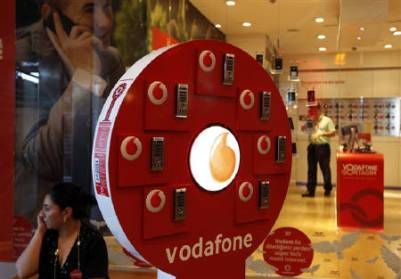 Wooing overseas investors, government on Wednesday decided against challenging the Bombay High Court decision favouring Vodafone in the Rs 3,200 crore (Rs 32 billion) tax case and adopt a similar approach in transfer pricing litigations involving other MNCs like Shell.
Wooing overseas investors, government on Wednesday decided against challenging the Bombay High Court decision favouring Vodafone in the Rs 3,200 crore (Rs 32 billion) tax case and adopt a similar approach in transfer pricing litigations involving other MNCs like Shell.
The government wants to convey a clear and positive message to investors globally that its decisions would be "fair, transparent and within the four corners of law", Telecom Minister Ravi Shankar Prasad said briefing reporters after a meeting of the Union Cabinet.
The Cabinet has decided to accept the Bombay High Court order of October 10, 2014, in the case of Vodafone India Services Pvt Ltd.
It also decided "to accept orders of Courts/ITAT/DRP in cases of other taxpayers where similar transfer pricing (TP) adjustments have been made and the Courts/ ITAT/ DRP have decided/decide in favour of the taxpayer".
The retrospective taxation brought in by the previous UPA government in connection with a separate Vodafone case, had raised serious concerns over predictability and consistency of the tax policies and had put off overseas investors from Indian markets.
Describing today's decision as a "major correction of a tax matter which has adversely affected investor sentiment," the government said this will set at rest the uncertainty prevailing in the minds of foreign investors in respect of transfer pricing cases.
"It will bring greater clarity and predictability for taxpayers as well as tax authorities, thereby facilitating tax compliance and reducing litigation on similar issues...improve the investment climate in the country," it added.
The decision would have implications for MNCs especially Dutch oil major Shell which had got a favourable ruling in the transfer pricing case from the Bombay High Court.
Transfer pricing is the practice of arm's length pricing for transactions between group companies based in different countries to ensure a fair price - one that would have been charged to an unrelated party - is levied.
A Vodafone spokesperson said, "We welcome the Indian government's decision not to appeal the Bombay High Court ruling. Stability and predictability in tax matters are important for long-term investors such as Vodafone."
The decision of not filing an appeal in the Vodafone case was taken at the highest level following advice by Attorney General Mukul Rohatgi.
Prasad said Finance Minister Arun Jaitley has held discussions with the CBDT, Attorney General, Solicitor General and it was found that the Bombay High Court opinion was right. "This fruitless litigation was avoidable in the past," he added.
The Cabinet is of the view that the transaction in the Vodafone case was on capital account and there is no income to be chargeable to tax. "So applying any (transfer) pricing formula is irrelevant," the statement said.
Investor confidence was shaken in the past because of very fluctuating tax policy wherein views of investors and government were at loggerheads, Prasad said. The Cabinet has taken a conscious decision not to file an appeal in the Supreme Court, he said, adding "it was a legacy issue in telecom and finance".
"We are trying to correct the legacy issue," he said. By this decision, he said, "a kind of signal we have given namely where the I-T liability is clear and unambiguous, it shall be charged. Where it is over stretched without legal authority, the government will be fair. That is the indication. It shows our fairness".
Ruling party BJP and its leaders have earlier said, including in their election manifesto, that its government would do away with 'tax terrorism' that the earlier government had indulged in.
The government, which is seeking overseas investments in a big way, has been conveying to foreign investors that it would pursue a non-adversarial and transparent tax regime.
In the Vodafone case relating to the 2010 transaction, the I-T Department had asked the company to pay additional income tax alleging that it had undervalued its shares in subsidiary, Vodafone India Services while transferring them to the parent company in Britain.








